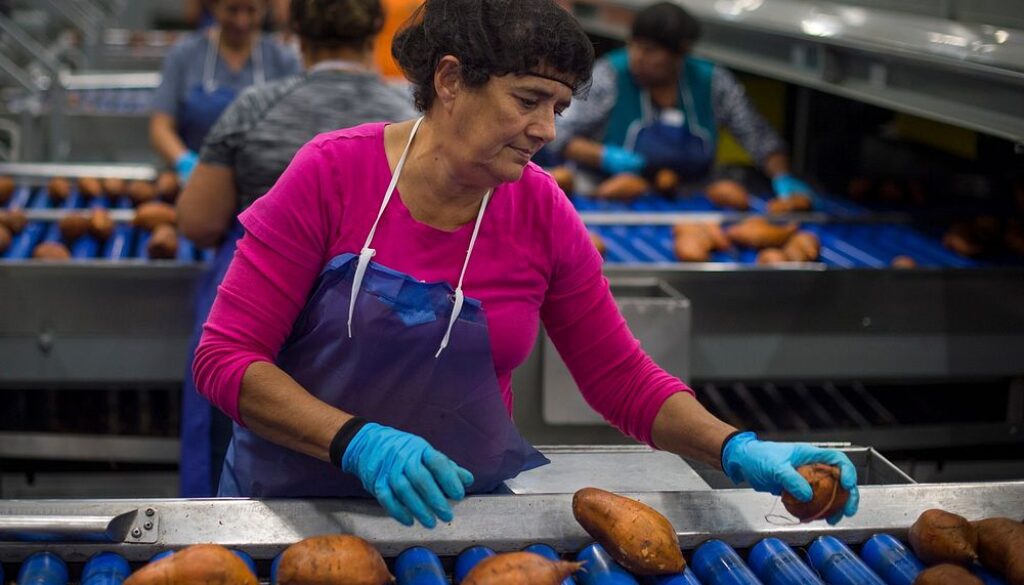The Food Processing Industry in El Salvador: An Overview
Table of Contents
Contact the Central American Group to begin starting up a manufacturing facility in the San Marcos or the International Free Zone in El Salvador.
El Salvador, a small Central American nation, has a significant food processing industry that plays a pivotal role in its economy and the region. The food processing industry in El Salvador not only caters to the domestic market but also serves as a significant exporter, tapping into international markets. Understanding the nuances of this sector requires a look at its scope, the raw materials involved, the finished products manufactured, and the strategic advantages of food processing activities in El Salvador in the country’s free zones.
Scope of Production
The food processing industry in El Salvador is diverse, encompassing a wide range of activities from basic food preservation to advanced value addition.
Major sectors within this industry include:
Fruits and Vegetables: Given the country’s agricultural strengths, the processing of fruits like mangoes, pineapples, and coffee and vegetables like beans and maize is prevalent. These are processed into canned products, juices, jams, and other derivatives.
Dairy Products: Milk, a staple in the Salvadoran diet, undergoes processing into various products such as cheese, yogurt, and condensed milk. The dairy industry has witnessed growth due to increased domestic and international demand.
Grains and Cereals: El Salvador boasts a diverse range of grains and cereals cultivated across its fertile terrains. Maize, a cornerstone of Salvadoran agriculture, is transformed into essentials like corn flour for making iconic tortillas, cornmeal for dishes such as pupusas, and various snacks like corn chips. Rice, another vital crop, finds its way into the kitchens as fluffy white grains but also undergoes processing to yield products such as rice flour for gluten-free baking and instant rice mixes. Additionally, beans, integral to the Salvadoran diet, are canned for convenience, transformed into pastes for dishes like refried beans, and ground into flour for diverse culinary uses. Together, these grains and cereals not only cater to the foundational dietary needs of the nation but also serve as versatile ingredients in the vibrant tapestry of Salvadoran cuisine.
Meat Processing: While smaller than other segments, meat processing is significant. Beef, poultry, and pork undergo various processes to produce sausages, cold cuts, and canned products.
Raw Materials Utilized in Food Processing in El Salvador
The richness of the agricultural sector is the backbone of the food processing industry in El Salvador. The primary raw materials include:
Agricultural Produce: Fruits like mangoes, pineapples, and coffee beans are sourced directly from farms. Similarly, maize, beans, and other vegetables come from local agricultural hubs.
Livestock: For meat processing, livestock farming provides the necessary raw materials. This includes cattle, pigs, and poultry.
Dairy Farms: Dairy processing relies heavily on milk sourced from local dairy farms, ensuring freshness and quality.
Imported Ingredients: While El Salvador is self-sufficient in many raw materials, certain ingredients, additives, or flavors might be imported to meet specific product requirements or international standards.
Finished Products
The food processing industry in El Salvador produces many finished goods tailored for local and international markets. Among these products are:
Canned Foods: These include fruits, vegetables, beans, and meats, ensuring longer shelf lives and convenience.
Beverages: Juices, both natural and flavored, coffee products, and other beverages cater to varied tastes.
Dairy Products: The dairy segment offers a range of products, from different cheese varieties to yogurt and condensed milk.
Snacks and Confectionery: Processed grains become snacks like tortillas, chips, and cereals. Additionally, confectionery items like candies and chocolates are also manufactured.
Benefits of Food Processing in Free Zones
Free zones have been instrumental in fostering growth within the food processing industry in El Salvador. Some of the notable advantages include:
Incentives and Tax Benefits: Firms operating within free zones enjoy tax breaks, reduced tariffs on imports and exports, and other fiscal incentives, making operations cost-effective.
Infrastructure and Support: The Salvadoran government and the private sector have invested in developing world-class infrastructure within free zones. This includes modern processing facilities, logistics support, and research centers.
Access to Global Markets: Free zones facilitate easier access to international markets due to streamlined customs procedures, ensuring that Salvadoran products reach global consumers efficiently.
Integration with Supply Chains: Companies within free zones can integrate seamlessly with global supply chains, sourcing raw materials and distributing finished products more efficiently.
Job Creation and Economic Growth: The free-zone food processing industry has significantly contributed to job creation, driving economic growth and improving livelihoods.
In conclusion, the food processing industry in El Salvador is a dynamic and vital sector that leverages the nation’s agricultural richness to produce a diverse range of products. With the strategic advantages of free zones, the industry is well-positioned to capitalize on domestic demand and international opportunities. As El Salvador continues to invest in infrastructure, technology, and innovation, its food processing sector is poised for further growth and prominence in the global marketplace.
Contact Us
Please use this form to contact us and we will respond as soon as possible:





